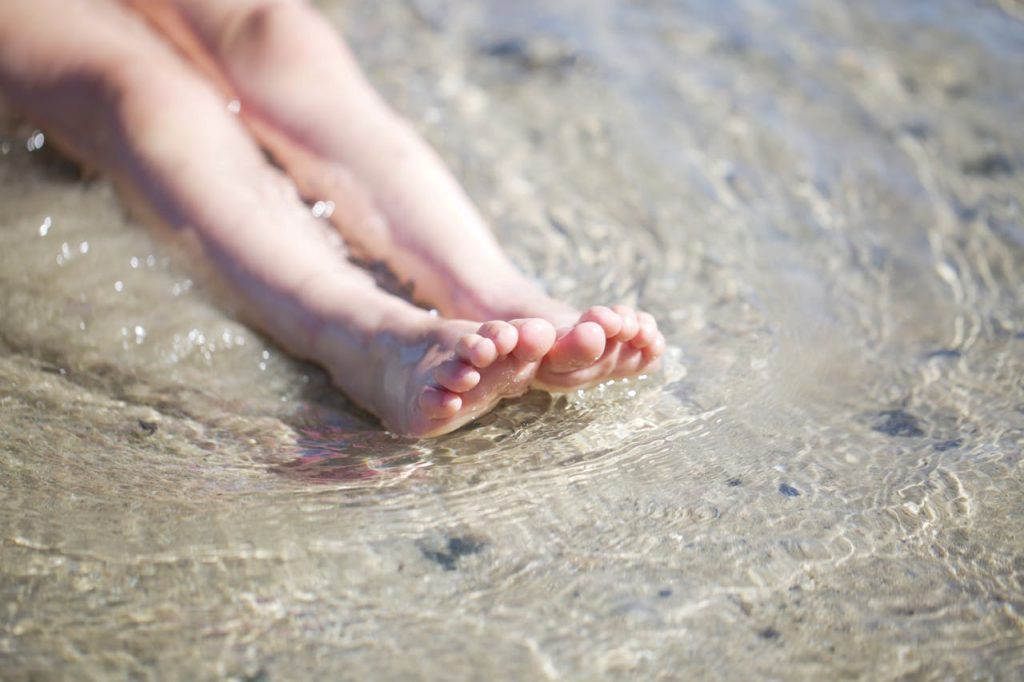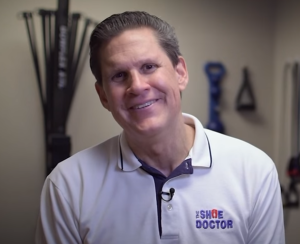Morton’s neuroma is a foot condition that affects the nerve between the toes. It can cause pain, tingling, or numbness in the ball of the foot. While it isn’t common, Morton’s neuroma does occur in some people. If you’re wondering if you might have this condition, or if you want to know more about it, then keep reading. This post will answer some of the most common questions about Morton’s neuroma.
FREQUENTLY ASKED QUESTIONS ABOUT MORTON’S NEUROMA
What is Morton’s neuroma, and what causes it?
Morton’s neuroma is a condition that occurs when the nerves between the toes become thickened and irritated. The exact cause of this condition is not entirely clear, but it is believed to be related to excessive pressure or friction on the feet. In particular, shoes that are too tight or high heels can put extra stress on the nerve tissue, leading to irritation and inflammation. Additionally, other activities that require a lot of foot movement, such as running or dancing, may increase one’s risk of developing Morton’s neuroma.
What are the symptoms of Morton’s neuroma?
Some of the most common symptoms associated with Morton’s neuroma include burning pain in the ball of the foot and toes; a feeling of throbbing or pins and needles in these areas; sensation loss in certain parts of the foot; and numbness along certain nerve pathways. If you experience any of these symptoms, it is important to seek medical attention right away in order to receive proper diagnosis and treatment.
How is Morton’s neuroma diagnosed and treated?
To diagnose Morton’s neuroma, your doctor will conduct a physical exam and ask you about your medical history. They may also order imaging tests, such as an MRI, to rule out other conditions. Once a diagnosis has been made, treatment options will be discussed.
Conservative treatments, such as rest, ice, and over-the-counter pain medications, can often help to relieve symptoms. However, if these measures are not effective, more aggressive treatments, such as steroid injections or surgery, may be necessary.
What is the outlook for people with Morton’s neuroma?
Most people who are treated for Morton’s neuroma experience relief from their symptoms. However, the condition can come back, so it is important to take steps to prevent its return, such as wearing proper footwear and avoiding activities that put excessive stress on the feet. If you have any questions or concerns about Morton’s neuroma, be sure to talk to your doctor.
How can I prevent Morton’s neuroma?
There is no sure way to prevent Morton’s neuroma, as the exact cause of the condition is not fully understood. However, one of the key risk factors for developing this condition is wearing tight or high-heeled shoes, so it may be helpful to avoid these types of footwear whenever possible. Additionally, taking steps to reduce pressure and friction on your feet, such as stretching regularly and avoiding activities that require a lot of foot movement, may also help to reduce your risk.
Can Morton’s neuroma be cured?
There is no cure for Morton’s neuroma, but the condition can be managed with treatment. In most cases, conservative measures, such as rest, ice, and over-the-counter pain medications, are enough to relieve symptoms and allow the condition to improve over time. If these measures are not effective, more aggressive treatments, such as steroid injections or surgery, may be necessary. With proper care and attention, most people with Morton’s neuroma can expect a full recovery.
What are the long-term effects of Morton’s neuroma?
In most cases, Morton’s neuroma is a temporary condition that can be effectively managed with treatment. However, if the condition is left untreated, it can cause permanent nerve damage and loss of sensation in the affected area. Additionally, Morton’s neuroma can come back, so it is important to take steps to prevent its return, such as wearing proper footwear and avoiding activities that put excessive stress on the feet. Overall, with the right care and attention, most people with Morton’s neuroma can expect a full recovery.
What are some common misconceptions about Morton’s neuroma?
One of the most common misconceptions about Morton’s neuroma is that it is a tumor. However, this is not the case. Morton’s neuroma is a condition that results from the compression of nerves in the foot, and it does not involve the growth of any abnormal tissue. Additionally, although Morton’s neuroma is often referred to as a “pinched nerve,” the condition does not actually involve any pinching or squeezing of the nerves. Instead, it occurs when the nerves become compressed or irritated.
Another common misconception about Morton’s neuroma is that it only affects women. However, this is not true. While women are more likely to develop this condition than men, it can affect people of any gender and age.
Other misconceptions about Morton’s neuroma include the beliefs that it is always painful or that it causes nerve damage in all cases. While these symptoms may be present in some cases, they do not occur in every instance of Morton’s neuroma, and they are not necessarily the result of this condition. Thus, it is important to seek medical attention if you experience any symptoms that may be associated with Morton’s neuroma, in order to receive an accurate diagnosis and appropriate treatment.
Remember, The 3 Arches of Your Feet Still Need Support!
Maybe you have already felt the first symptoms of balance disorders or you want to prevent them from appearing in the first place. Consider getting a foot orthotic device or simply take care of your feet. Start by washing them thoroughly with a gentle soap whenever you take a shower. Being a very complex support system, your feet are your first line of defense against balance-related issues, since their arches provide you with the stability you need in your daily life. It’s time to put your foot down and push back against balance issues. With both feet on the ground, dedicate yourself to keeping them comfortable and healthy. Give us a call and we will scan your feet to make you custom orthotic inserts.
The Shoe Doctor has specialized in providing custom orthotics for 20 years. The right orthotic insoles can greatly reduce foot, knee and hip pain while increasing performance and comfort. Russell at The Shoe Doctor will help educate and assist you in finding the perfect solution for your particular situation. We will create a 3D map of your feet and make custom orthotics for your hiking boots, everyday shoes, and everything else in between. These orthotics, along with our expert advice, will get you using orthotics like a pro, and have you performing at the peak of your abilities in no time! If you are in the San Francisco Bay Area, give The Shoe Doctor a call to get the best custom orthotics in the area! We are here to assist you, schedule your free consultation here!
Disclaimer
The materials available on this website are for informational and entertainment purposes only and not for the purpose of providing medical advice. You should contact your doctor to obtain advice with respect to any particular issue or problem. You should not act or refrain from acting on the basis of any content included in this site without seeking medical or other professional advice. The information presented on this website may not reflect the most current medical developments. No action should be taken in reliance on the information contained on this website and we disclaim all liability in respect to actions taken or not taken based on any or all of the contents of this site to the fullest extent permitted by law.


